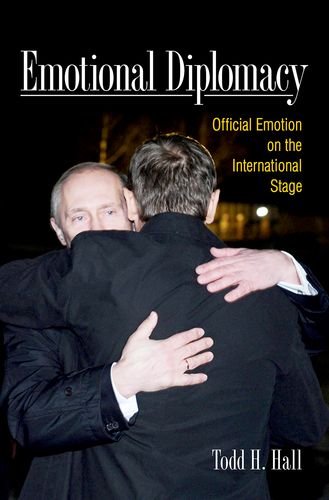

Most ebook files are in PDF format, so you can easily read them using various software such as Foxit Reader or directly on the Google Chrome browser.
Some ebook files are released by publishers in other formats such as .awz, .mobi, .epub, .fb2, etc. You may need to install specific software to read these formats on mobile/PC, such as Calibre.
Please read the tutorial at this link: https://ebookbell.com/faq
We offer FREE conversion to the popular formats you request; however, this may take some time. Therefore, right after payment, please email us, and we will try to provide the service as quickly as possible.
For some exceptional file formats or broken links (if any), please refrain from opening any disputes. Instead, email us first, and we will try to assist within a maximum of 6 hours.
EbookBell Team

4.8
54 reviewsIn Emotional Diplomacy, Todd H. Hall explores the politics of officially expressed emotion on the international stage, looking at the ways in which state actors strategically deploy emotional behavior to shape the perceptions of others. Examining diverse instances of emotional behavior, Hall reveals that official emotional displays are not simply cheap talk but rather play an important role in the strategies and interactions of state actors. Emotional diplomacy is more than rhetoric; as this book demonstrates, its implications extend to the provision of economic and military aid, great-power cooperation, and even the use of armed force.
Emotional Diplomacy provides the theoretical tools necessary for understanding the nature and significance of state-level emotional behavior and offers new observations of how states seek reconciliation, strategically respond to unforeseen crises, and demonstrate resolve in the face of perceived provocations. Hall investigates three specific strands of emotional diplomacy: those rooted in anger, sympathy, and guilt. Presenting original research drawing on interviews and sources in five different languages, Hall provides new insights into the 1995–1996 Taiwan Strait Crisis, the post-9/11 reactions of China and Russia, and relations between West Germany and Israel after World War II. He also demonstrates how his arguments can be extended to further cases ranging from Sino-Japanese relations to diplomatic interactions in Latin America. Emotional Diplomacy offers a unique take on the intersection of strategic action and emotional display, offering a means for making sense of why states appear to behave emotionally.